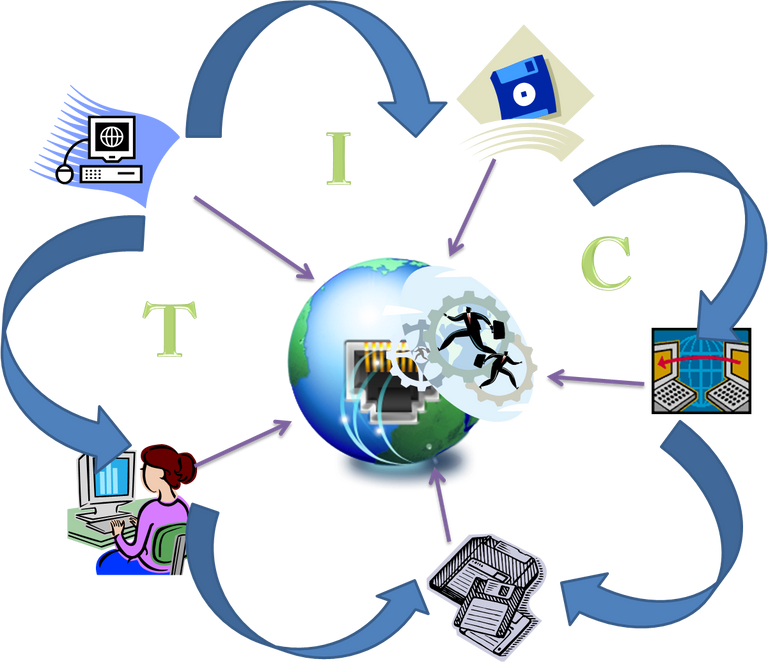
The self-confidence to stay informed in defense of one's own intellectuality.
There is no way to be informed without putting effort into it, whatever we have in mind, be it about what is happening in the world, about physics, football, politics, the economy, whatever. Understanding is not free.
It requires time and willpower.
It is true that the task, for a specific individual, is between terribly difficult and completely impossible. But it is available to anyone who is part of a community that works together (and that is true for the other cases as well).
Trying to understand a concept individually is generally much more difficult than doing so collectively. The individual has the barrier of his own beliefs and convictions (not just political ones). And it is very unlikely that on his own, individually, he will not be able to overcome them.
The same goes for intellectual "self-defense." It takes a lot of self-confidence, perhaps more than one should have, to take a position just because it seems right to you in opposition to everything you see and hear.
Deny what is known.
There is even evidence for that: under experimental conditions people deny what they know to be true when they are informed that others they have reason to trust do the same (the classic social psychology experiments, which have often been presented as elements of proof that people are conformist and irrational, but that they can be understood differently, to indicate that people are quite reasonable and use all the information at their disposal).
More important than all this is that a community, an organization, can be the basis for action, for so-called "awareness." There are also many techniques for penetrating the veil of propaganda that should be automatic when dealing with the products of doctrinal institutions (the media, opinion magazines, experts). For example, it is very common for the basic framework of an article to be horribly misleading, complying with doctrinal dictates, but within it one can discover hints that something else is going on.
The social influence.
The other individuals with whom we maintain contact are part of a society; Their culture, represented in the life patterns they apply, consists of current practices and institutions, transmitted from generation to generation.
In our society, language, the monogamous family, and private property represent illustrative cultural patterns.
Culture represents a context of experience. To expand our understanding of social behavior, we admit that other people are not only social stimuli to which we react, but also that they collectively create other, socially significant stimuli.
The design of the conventional press.
It is positive to often read the conventional press starting with the final paragraphs. It is not a joke. The headline, the presentation, the opening paragraphs, are designed (consciously, you learn that in journalism school) to give the overview and story that most readers will read.
That they will not take the trouble to read the fine print, to think a lot about the topic, to get to the end of the article and compare it with the previous day's version. This is just one example. We could choose any newspaper and any article without fear of making a mistake.
In all cases I think we could find some clues about the so-called intellectual "self-defense" but, basically, it is the same as in any other sector or activity.
If you want to learn something, it takes work.
And the chances of success, or useful success, increase considerably with team effort and exchange.
Especially if they help you think.

No hay forma de estar informado sin dedicarle esfuerzo, tengamos en mente lo que tengamos, sea sobre lo que pasa en el mundo, sobre la física, el fútbol, la política, la economía, sobre lo que sea. La comprensión no es gratis.
Se requiere tiempo y esfuerzo de voluntad.
Es cierto que la tarea, para un individuo concreto, es entre terriblemente difícil y completamente imposible. Pero está al alcance de cualquiera que sea parte de una comunidad que trabaja en equipo (y eso es cierto para los otros casos también).
Tratar de entender un concepto en forma individual generalmente es mucho más difícil que hacerlo colectivamente. El individuo tiene la barrera de su propias creencias y convicciones (no sólo políticas). Y es muy improbable que por cuenta propia, individualmente, no logre superarlas.
Lo mismo ocurre con la "defensa propia" intelectual. Se requiere mucha confianza en uno mismo, quizá más de la que uno debería tener, para tomar una posición sólo porque te parece correcta en oposición a todo lo que ves y oyes.
Negar lo que se sabe.
Incluso hay pruebas sobre eso: bajo condiciones experimentales la gente niega lo que saben que es cierto cuando se les informa que otros en quienes tienen razones para confiar hacen lo mismo (los clásicos experimentos de psicología social, que a menudo han sido presentados como elementos de prueba de que la gente es conformista e irracional, pero que se pueden entender de forma diferente, para indicar que la gente es bastante razonable y usa toda la información a su alcance).
Más importante que todo esto es que una comunidad, una organización, puede ser la base para la acción, para la llamada "toma de conciencia".
Hay también muchas técnicas para penetrar el velo de la propaganda que deberían ser automáticas cuando tratamos con los productos de las instituciones doctrinales (los medios de comunicación, las revistas de opinión, los expertos).
Por ejemplo, es muy común que el marco básico de un artículo sea horriblemente engañoso, cumpliendo con los dictados doctrinales, pero que dentro de él se puedan descubrir indicios de que está pasando algo más.
La influencia social.
Los otros individuos con quienes mantenemos contacto son parte de una sociedad; su cultura, representada en las pautas de vida que aplican, consiste en las practicas y las instituciones vigentes, transmitidas de generación en generación.
En nuestra sociedad el lenguaje, la familia monógama, la propiedad privada representan pautas culturales ilustrativas.
La cultura representa un contexto de experiencia. Para ampliar nuestra comprensión del comportamiento social, admitimos de hecho las otras personas son estímulos sociales ante las cuales reaccionamos, sino también que ellas crean colectivamente otros estímulos, significativos desde el punto de vista social.
El diseño de la prensa convencional.
Es positivo leer a menudo la prensa convencional empezando por los párrafos finales. No es una broma. El titular, la presentación, los párrafos iniciales, están diseñados (conscientemente, se aprende eso en la facultad de periodismo) para dar la visión general y la historia que leerán la mayoría de lectores.
Que no se tomarán la molestia de leer la letra pequeña, de pensar mucho sobre el tema, de llegar al final del artículo y de compararlo con la versión del día anterior.
Este es tan sólo un ejemplo. Podríamos escoger cualquier periódico y cualquier artículo sin miedo a equivocarnos.
En todos los casos creo que podríamos encontrar algunas pistas sobre la llamada "defensa propia" intelectual pero, en el fondo, es lo mismo que en cualquier otro sector o actividad.
Si quieres aprender algo, requiere trabajo.
Y las probabilidades de éxito, o de éxito útil, aumentan considerablemente con el esfuerzo e intercambio en equipo.
Sobre todo si te ayudan a pensar.
Source image / Fuente imagen: Jan Canty


Mis Blogs y Sitios Web / My Blogs & Websites:
- La Cucina di Susana.
- Cucinando con Susana
- El Mundo de los Postres
- Crónicas de Un Mundo en Conflicto.

Upvoted. Thank You for sending some of your rewards to @null. Get more BLURT:
@ mariuszkarowski/how-to-get-automatic-upvote-from-my-accounts@ blurtbooster/blurt-booster-introduction-rules-and-guidelines-1699999662965@ nalexadre/blurt-nexus-creating-an-affiliate-account-1700008765859@ kryptodenno - win BLURT POWER delegationNote: This bot will not vote on AI-generated content
Thanks @ctime and curators team.